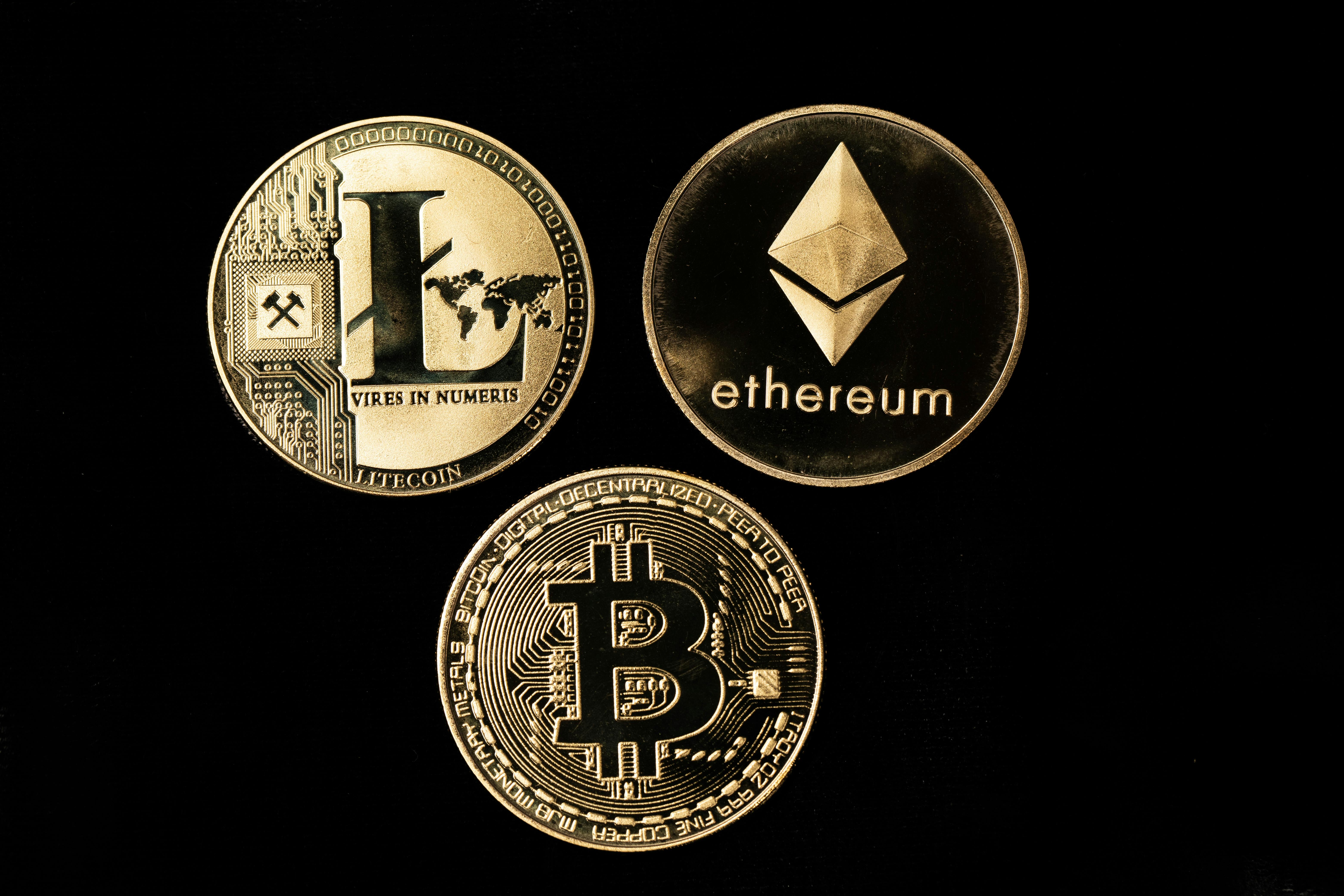Litecoin vs Ethereum: Key Differences and Which Is Better?
Compartir
The rise of Bitcoin allowed for the introduction of cryptocurrency to the general public, but many newer forms of cryptocurrency (also referred to as altcoins) have solved some of bitcoin’s unresolved issues. We’ll discuss two popular platforms for altcoins, Litecoin and Ethereum, which each have unique strengths and purposes.
What Is Litecoin and Why Do People Buy It?
Litecoin (LTC), a cryptocurrency that uses peer-to-peer technology to quickly send payments worldwide, was built using Bitcoin’s source code in 2011 by MIT alumnus and former Google employee Charlie Lee, whose goal was to create a faster, fairer, cheaper, and “lighter” version of Bitcoin.
LTC is four times faster to mine than bitcoin, and features very low transaction fees, as opposed to Ethereum’s higher gas fees. Litecoin is often referred to as the silver to Bitcoin’s gold.
Since the Litecoin network can process blocks four times faster, the total amount of LTC released scales accordingly. This means the fixed amount set to exist will max out at 84 million coins, as opposed to bitcoin’s aforementioned 21 million. Another fun fact about Litecoin is that through a process called merge mining, LTC coins can be mined at the same time as DOGE, using the same equipment.
Since its creation, Litecoin has consistently stayed in the top cryptocurrencies by market capitalization, which is no surprise given its speed and low fees. Moreover, since LTC is seen as a well-established coin on the market, many merchants that accept payment in Bitcoin accept Litecoin as well.
LTC Privacy Upgrade
In 2022, Litecoin integrated the MimbleWimble Protocol (MWEB) which allows users to send and receive Litecoin without exposing their wallet origins or the amount transacted.
To enable MWEB, do this:
Update Wallet: Ensure you are using a Litecoin wallet that supports MWEB.
Opt-In: Choose to use the MimbleWimble Extension Block for your transactions.
Transact Privately: Enjoy the benefits of enhanced privacy and scalability.
What Is Ethereum and Why Do People Buy It?
Ethereum is a global, host-less software platform on which developers build blockchain-based applications that can run without being controlled by a particular company. Bitcoin enthusiast and programmer Vitalik Buterin came up with the concept for Ethereum in 2013, and the Ethereum blockchain went live in 2015. It was specifically designed to support the creation and execution of smart contracts. Bitcoin can also support smart contracts, but in a significantly more limited capacity.
Many cryptocurrency tokens are issued over the Ethereum network, and the currency used to facilitate those transactions is named, appropriately, ether (ETH). Although Bitcoin beat ether to market by a number of years, Ethereum’s growth as a platform – and by extension ETH as the fuel that powers that platform – has seemingly limitless potential, versus Bitcoin’s pre-existing supply ceiling of 21 million coins, of which 19 million+ are currently in circulation.
Given that Ethereum has essentially cornered the market on smart contracts, and also supports the acquisition of non-fungible tokens, or NFTs, there’s a reason why Ethereum has held fast to its #2 spot behind Bitcoin. Smart contracts may play an outsized role in the development of Web3 technologies (a decentralized version of the internet based on blockchain technology, smart contracts, and NFTs), and many individuals and organizations have discovered their utility in the past few years.
Read More: What Are Ethereum Gas Fees?
How Do Ethereum and Litecoin Compare?
As you may now surmise from descriptions of both, comparing Ethereum and Litecoin is a bit of an apples-and-oranges situation. Consequently, their individual token price tends to be quite different, not only because of the difference in their functionality, but also because LTC has a limited market supply while ETH does not.
For all of its efficiency and usability, Litecoin competes within a large market of altcoins, making it unclear if it will ever be widely adopted the way Bitcoin has been. However, as Bitcoin use continues to grow, it will be increasingly expensive for its network to handle the volume of transactions. In this case, Litecoin could be seen as a reliable second choice for handling similar types of transactions with lower fees and faster transaction times. Coupled with is anonymity protocols and Litecoin becomes a great tool for privacy-minded crypto users.
Conversely, the Ethereum blockchain network has tremendous potential for building decentralized applications and smart contract execution, but thus far it remains to be seen if that will translate to the ether token becoming more usable and widely adopted for practical use. It does bear repeating, however, that it consistently ranks second overall in consumer trading, far ahead of Litecoin.
Because of its unique network structure and versatility, the Ethereum network boasts an enthusiastic community of supporters and developers that Litecoin simply does not have. Nevertheless, many crypto investors choose to purchase both ETH and LTC in the interest of a diversified DeFi portfolio.
How to Buy LTC and ETH
The more consumers get to know ETH, LTC, and other altcoins on the market, the more power they’ll have to make informed investing decisions as the crypto market matures. If you're looking to invest in either coin, CoinFlip ATMs allow you to buy both LTC and ETH with cash in minutes. The CoinFlip Wallet App can also sell ETH through Moonpay. And if you're looking for white-glove service to make a large bank wire transaction, try our OTC desk, CoinFlip Preferred.
Compartir
Suscríbete a nuestro boletín para obtener descuentos exclusivos, noticias de la empresa y mucho más de CoinFlip.
Más historias
Advanced Crypto Wallets Explained: Paper, Multi-Sig, Decoy and ID Wallets
8 de octubre de 2025
Scott Wilson
Lose your Wallet? Here's How to Recover your Bitcoin
27 de agosto de 2025
Scott Wilson
Best Ways to Buy Bitcoin
19 de agosto de 2025
Scott Wilson

